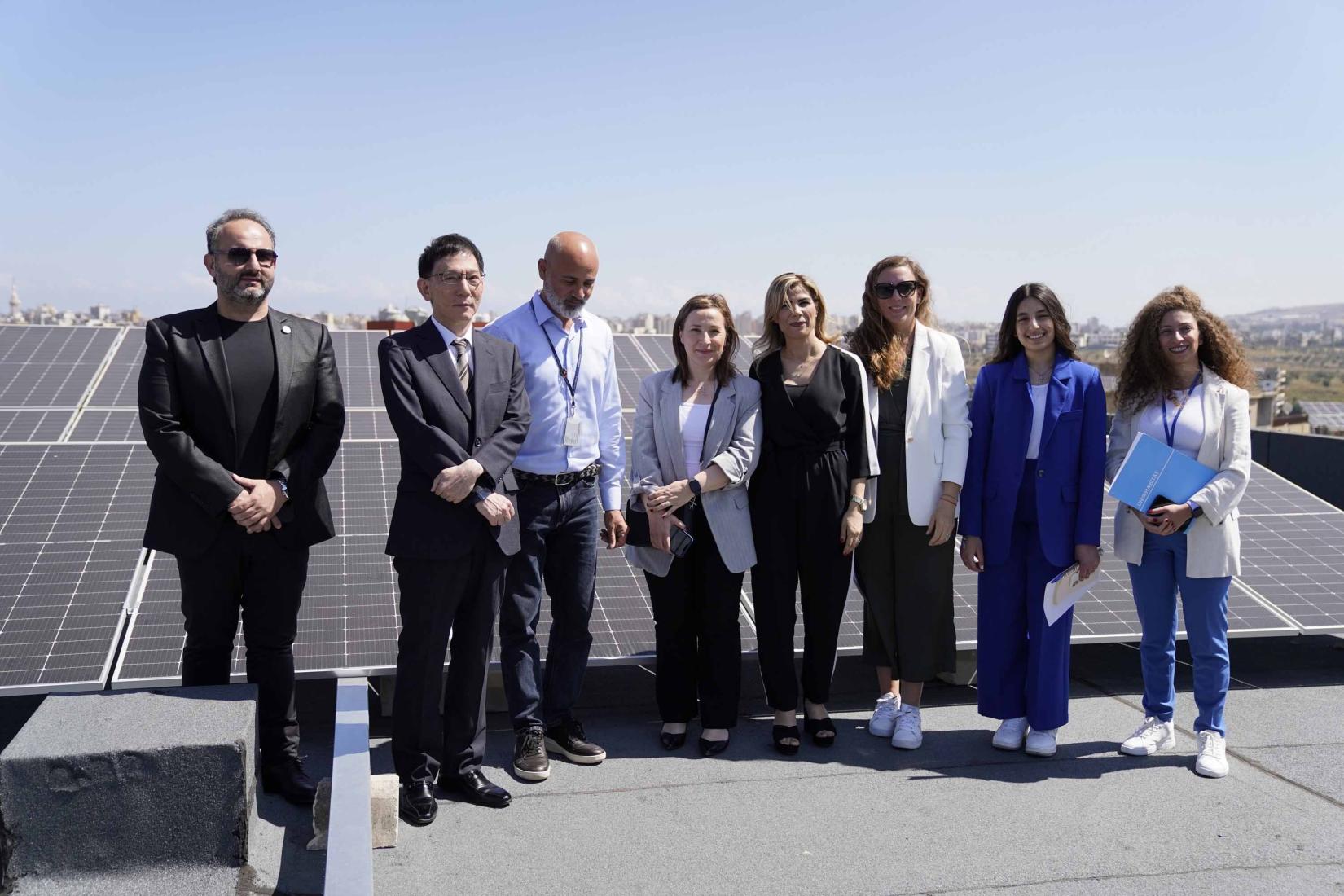UN-Habitat and the Embassy of Japan in Lebanon complete a multi-sectoral project providing urban solutions to urgent needs in Abou Samra, Tripoli
30 May 2024
Tripoli, 30 May 2024 -- Today, the United Nations Human Settlements Programme (UN-Habitat) marked the successful completion of the “Al-Marjeh” project, funded by the Government of Japan in Lebanon. It marks an important milestone towards enhancing the lives of vulnerable urban communities within the Abou Samra area in Tripoli.
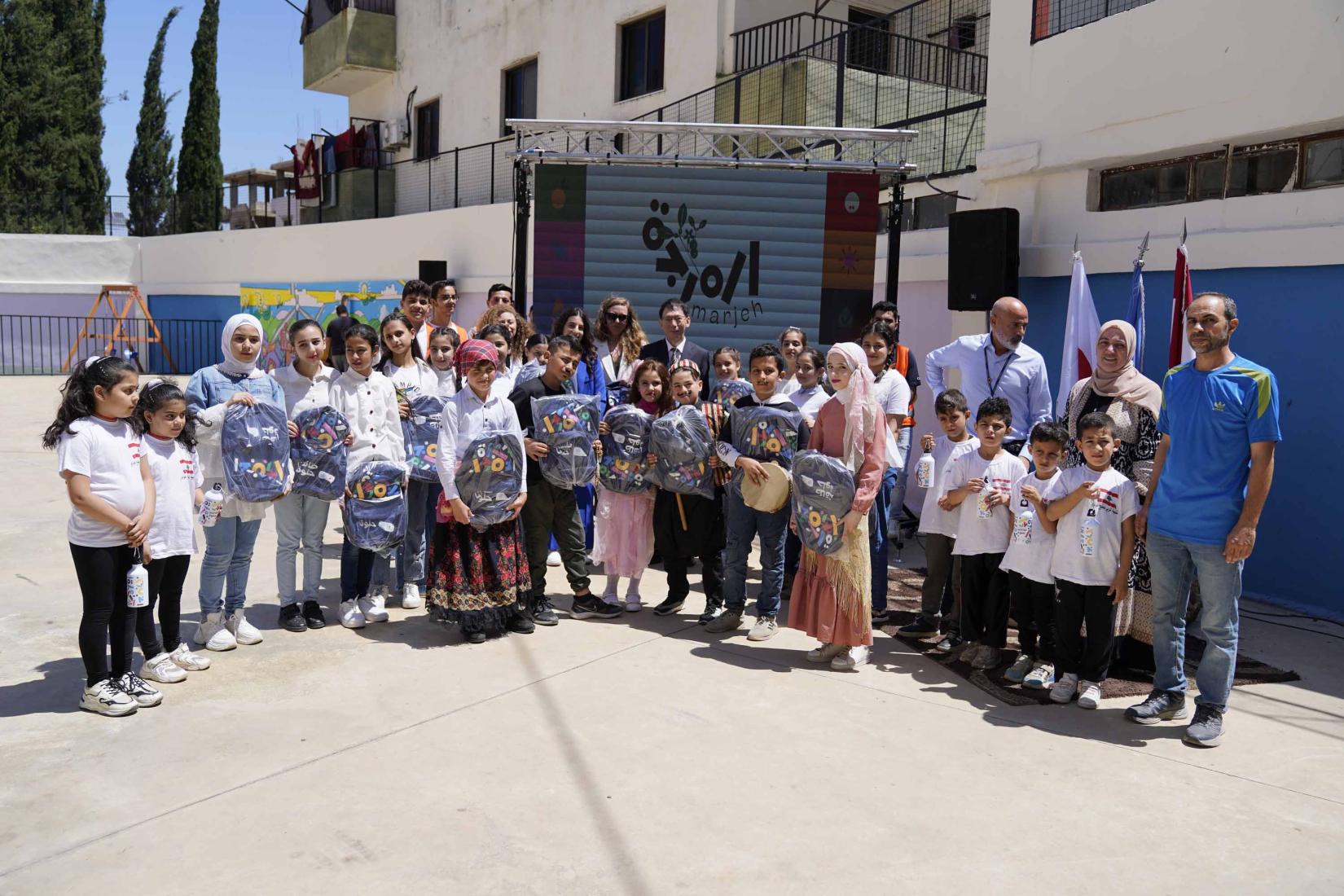
Based on a neighborhood profile developed by UN-Habitat, several urgent needs were identified. As a result, the project adopted a multi-sectoral approach to addressing some of these needs, benefitting more than 5,000 individuals. These included enhancing food security through improving skills and livelihoods by implementing urban farming activities; the implementation of renewable energy and clean water solutions in two schools and one health establishment.
The closing event was held in the presence of H.E. Mr. Magoshi Masayuki, the Japanese Ambassador to Lebanon, Mrs. Mirvat Hamzeh, Head of the Educational District Office in the North, and Ms. Taina Christiansen, Head of UN-Habitat Lebanon Country Programme, as well as the partners of the project.
“This project with UN-Habitat, which falls in the framework of The Japanese Government’s Development Cooperation Charter that prioritizes human security, came as a response to the growing challenges of the communities in Tripoli, in the sectors of food security, agriculture, healthcare, and education. Japan and as it remains committed to stand by Lebanon and its people during these difficult times will continue to encourage durable solutions that address not just the immediate needs of the most vulnerable, but also strengthen national capacities to sustainably improve socio-economic conditions through a holistic development approach” said H.E. Mr. Magoshi Masayuki, the Japanese Ambassador to Lebanon.
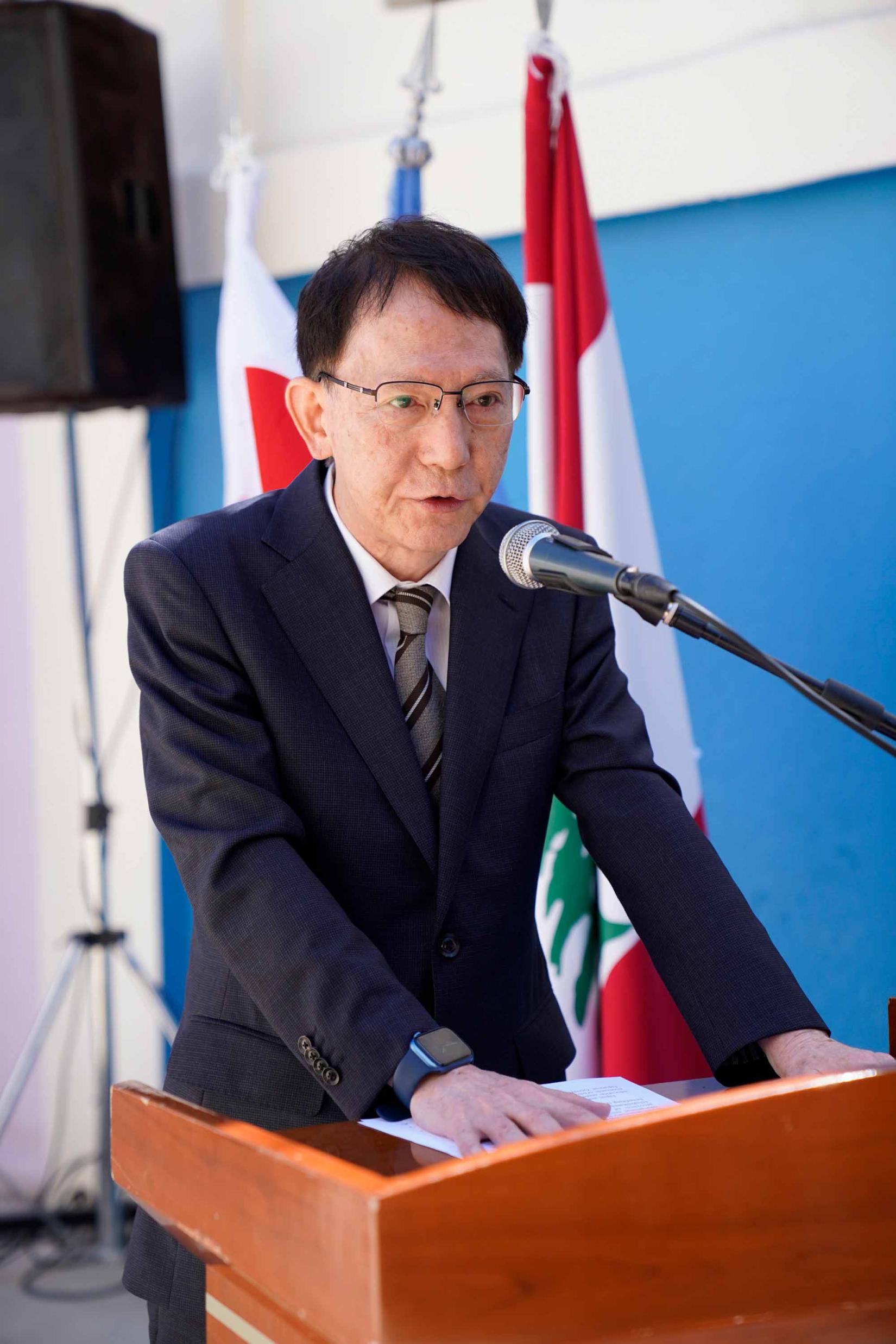
The urban farming component offered a means to enhance food security and generate income for more than 150 women and youth. The water and renewable energy interventions were implemented in Samih Mawlawi and Hay Al Nozha public schools benefitting 1,290 students and at the dispensary benefitting more than 1,000 persons. The schools also benefitted from the rehabilitation of its grounds, a playground as well as waterproofing.
“Despite all the social, financial, and economic obstacles dominating Lebanon, especially in this region, this achievement constitutes a remarkable educational renaissance that will empower the students and improve the quality of education. Given the state's inability to fully support these efforts, there is an appeal for continued external support to ensure the success of the schools involved” said Mrs. Mirvat Hamzeh, Head of the Educational District Office in the North.
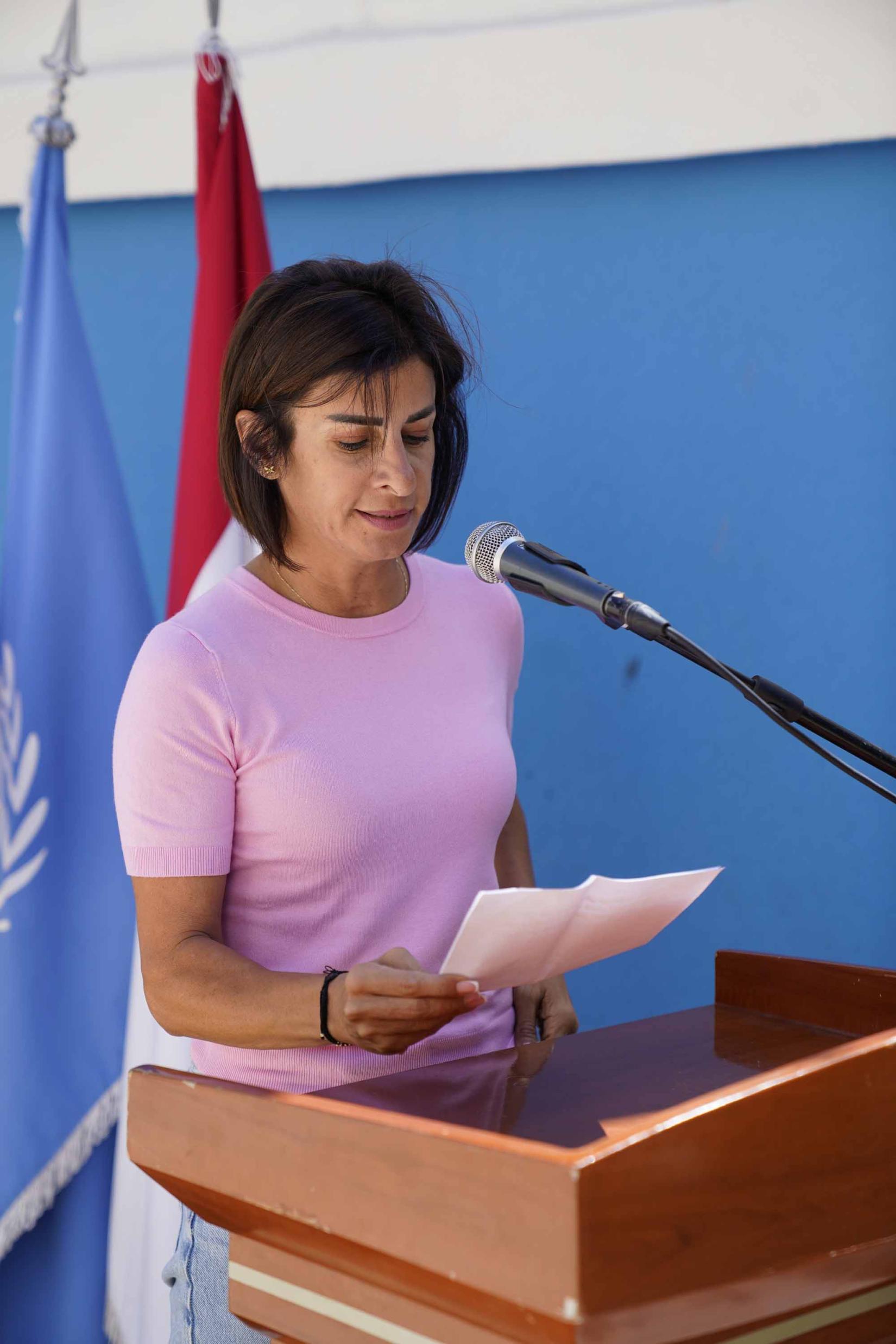
“’The Al-Marjeh project came at a critical time in Lebanon where women and youth are placed in extremely vulnerable and difficult situations. Thanks to Japan's generous support, this innovative area-based project is a testament to what we can achieve together. It sets a precedent for future multi-sectorial initiatives across the country, including the value and benefit of urban farming in the city. We are proud to have partnered with multiple stakeholders who were critical to the project's success, and to have built trust with the community in Abou Samra spreading awareness on the value of a bottom-up approach to addressing collective needs and challenges, particularly in a dense urban neighbourhood” said Ms. Taina Christiansen, Head of UN-Habitat Lebanon country programme.
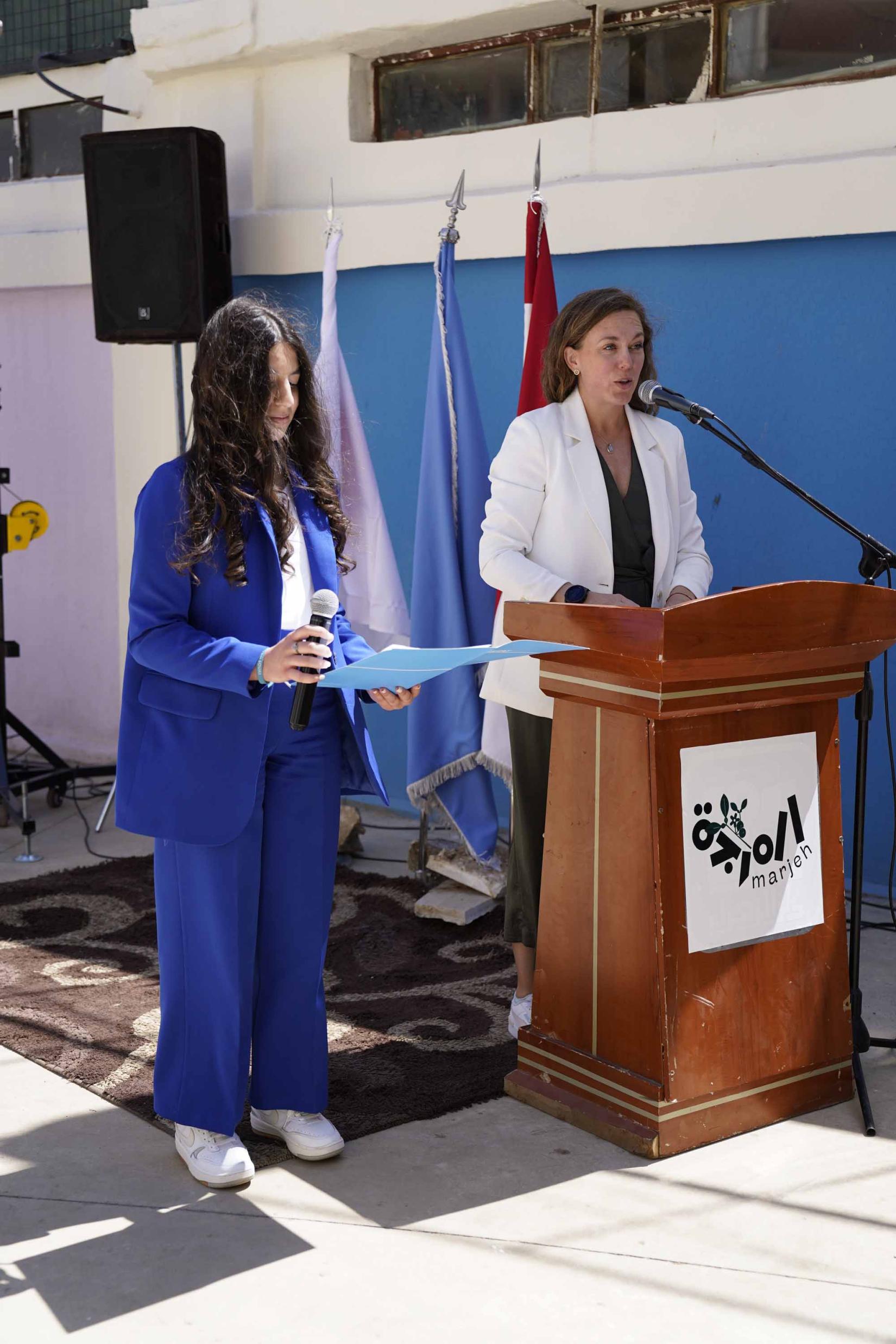
- ENDS-
About the United Nations Human Settlements Programme (UN-Habitat)
UN-Habitat works in over 90 countries supporting people in cities and human settlements for a better urban future. Working with governments and local partners, its high impact projects combine world-class expertise and local knowledge to deliver timely and targeted solutions. The 2030 Agenda for Sustainable Development includes a dedicated Goal on cities, SDG 11 – to make cities inclusive, safe, resilient, and sustainable.
